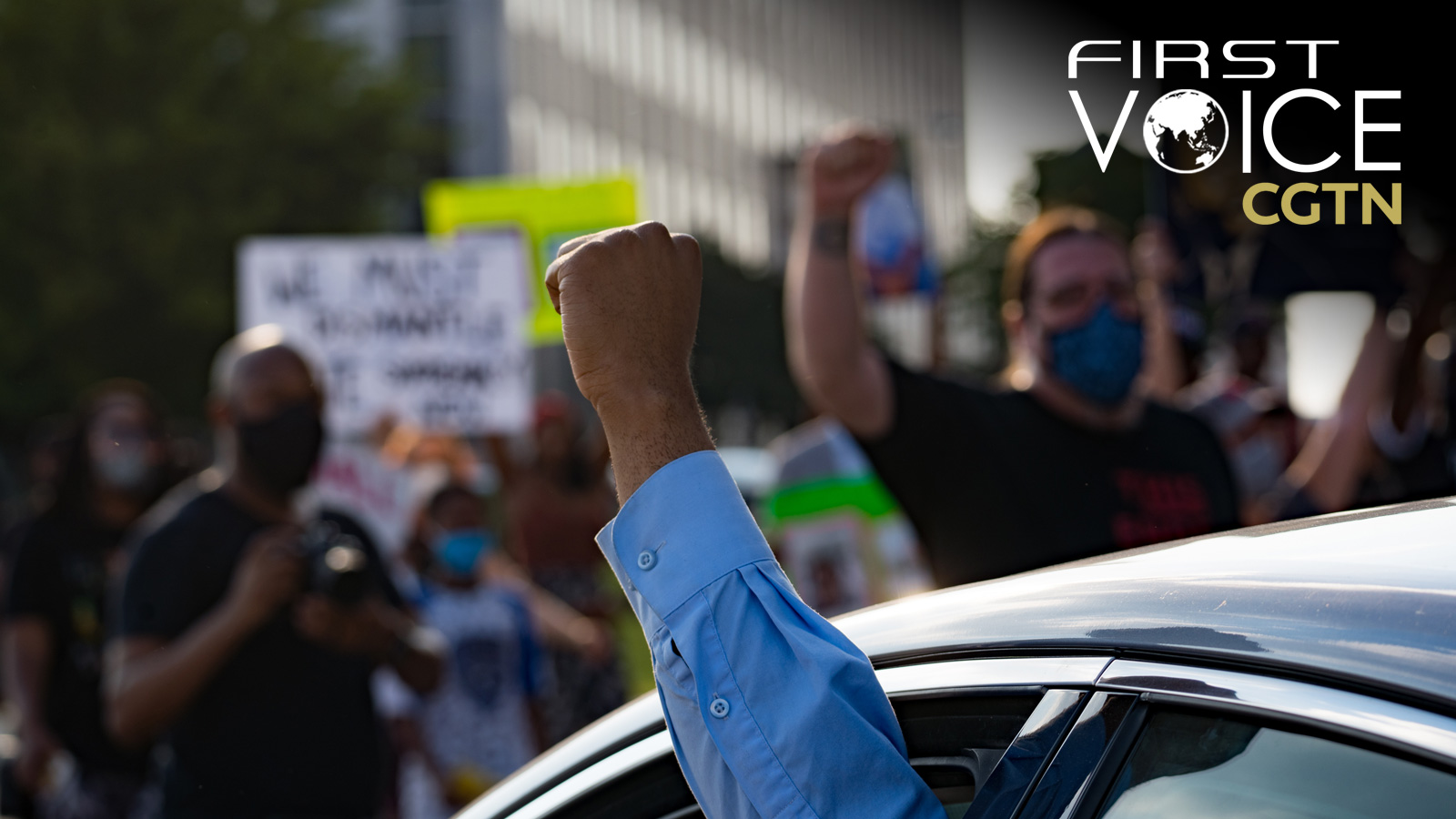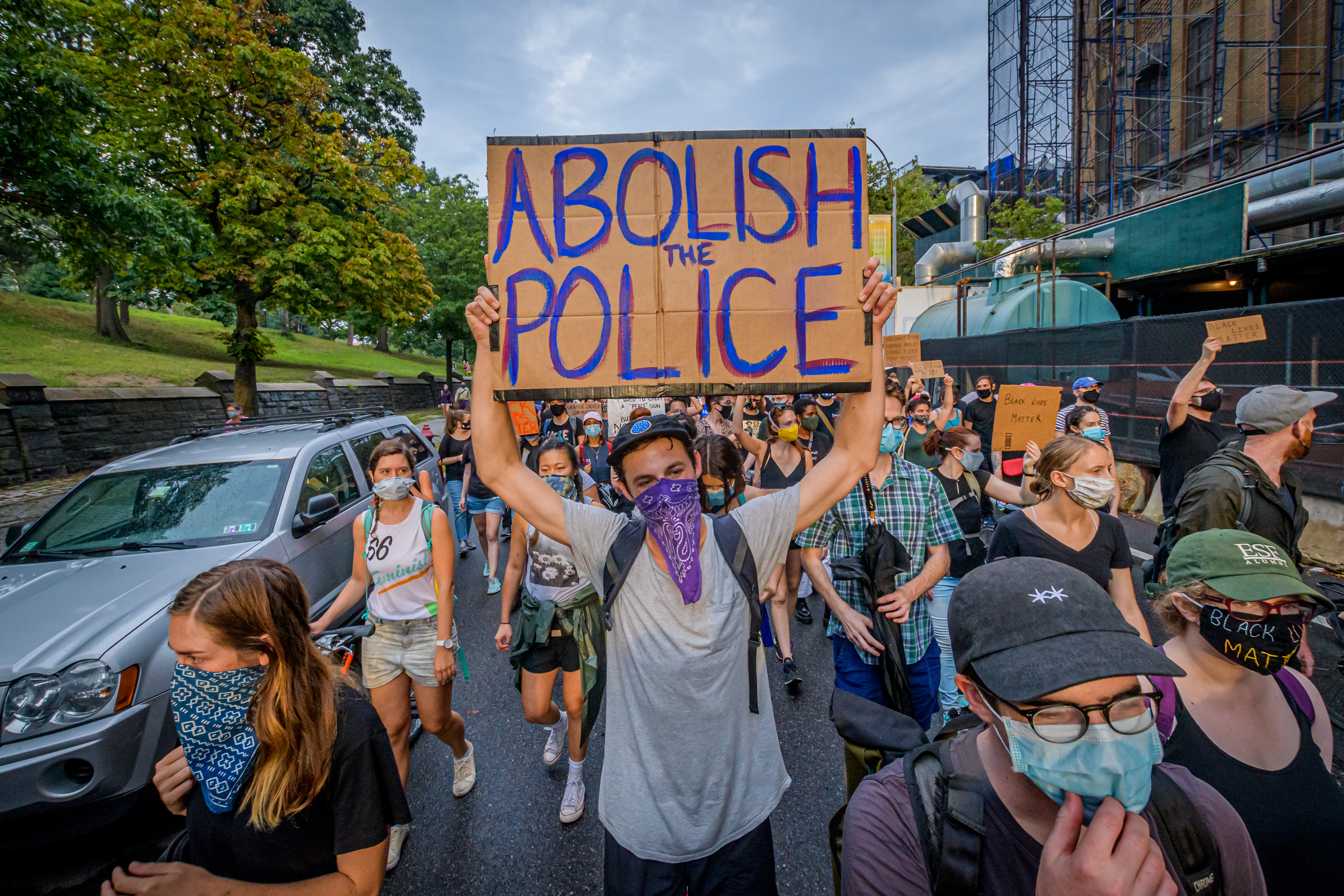
Editor's note: CGTN's First Voice provides instant commentary on breaking stories. The daily column clarifies emerging issues and better defines the news agenda, offering a Chinese perspective on the latest global events.
Derek Chauvin, the former Minneapolis policeman whose knee-pressing on the neck led to African-American George Floyd's death in 2020, received a 22.5 years sentence in prison on June 25 local time in the U.S.
For a country that rarely charges and convicts police for killing people on duty, the sentence does seem like a victory for those who champion racial justice. According to Bowling Green State University's database, about 56 percent of charges against police for violent crimes ended in a conviction between 2005 and 2015. When it comes to the most serious charges like murder or manslaughter, the conviction rate drops to as low as half. Floyd family's legal time described the court ruling this time as a "historic sentence" and is a "step closer to healing by delivering closure and accountability."
A step closer, by no means a solution. Some may say not even close.
Peter Cahill, the judge of this case, said the sentence was not based on emotion or public opinion. But it is the emotion and public opinion that stood out in this case. The death of George Floyd sparked the largest protest in U.S. history. Poll finds somewhere between 15 million and 26 million took to the street in the United States and protests erupted in over 200 cities and towns in over 60 countries to support the Black Lives Matter movement.
And it all happened in an unprecedented election year under an untraditional administration. The battle over race has always been contentious between Republicans and Democrats. Donald Trump took it to another level. Both parties became hyper-sensitive and active when it comes to utilizing race in favor of their political stance. Trump appealed to his base of racism while some Democrats took it to the other extreme. In an upcoming new book by Wall Street Journal reporter Michael Bender, it is written that Trump said he wanted the military to "beat the f—k out" of the civil rights protests and "just shoot them." Democrats, on the other hand, embroiled themselves in a fight over "defunding the police" – a slogan that incites equal ferocity in proponents and opponents alike.

A participant holding a Abolish Police sign at the protest in the New York City. The coalition of NYC-based activists and organizations participated on a march through NYC in solidarity with the Get Your Knee Off Our Necks Commitment March on Washington to amplify the movement against police brutality and racial injustice, August 28, 2020. /Getty
A participant holding a Abolish Police sign at the protest in the New York City. The coalition of NYC-based activists and organizations participated on a march through NYC in solidarity with the Get Your Knee Off Our Necks Commitment March on Washington to amplify the movement against police brutality and racial injustice, August 28, 2020. /Getty
The politicization and eruption of public sentiment are illustrative of how near-irresolvable the problem is. The discrimination and injustice against African-Americans or other minorities are well-documented in U.S. history. Those same points of view and actions survived to this day. The power imbalance – political, economic, and social – between the dominant White and the minorities has been mitigated but not fixed.
The liberal political inclinations in both the Democrats and Republicans before Donald Trump have already created a sense of panic and loss of tradition among the more conservative electorate in the U.S. The first Black president brought hope to the minorities but was soon mired in a Washington ground to a halt and the rise of conservative-populist movement across the United States. The progress towards equality, in the eyes of many minorities, risked being stopped.
Then Trump came on. His machoism, favor for law enforcement, and cavalier attitude toward race validated their concerns. The machine of state, with the ability to assert overwhelming physical power onto the minorities, became the terror many believe they will soon face. What we've seen over the course of 2020's protests – the destruction of public property, the declaration of the autonomous zone in cities – are directly born out of that fear, carried out with a sense of vengeance and total repudiation of the state's authority over their lives and their choices.
Race and political brutality are more than just about justice or equality. However many efforts are put into insistence the sentence has nothing to do with public opinion or emotions, people will see this outcome as a result of their actions over the past year. When it is seen that the ideal of justice and equality can only be achieved through rebuking the system instead of working through it, the system itself has lost faith in the people – regardless of who is running it.
Then perceived "just outcome" is just a one-time thing. And when the next case happens, what happened in 2020 would repeat itself all over again.
(Scriptwriter: Huang Jiyuan)
(If you want to contribute and have specific expertise, please contact us at opinions@cgtn.com.)

